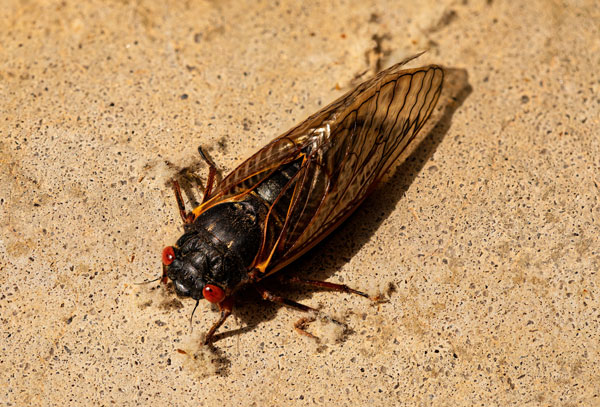Blair Garrett
Get your earmuffs ready, it’s cicada season!
Our septdecennial ground-dwelling friends are returning from their 17-year slumber, as they thunderously announce their arrival.
Cicadas are some of the most unique insects in the entire world, and the lore behind them is almost as strange as their life cycles.
For thousands of years, cicadas have been mistaken to be one of the signs of the biblical plague (locusts); but, aside from the temporary tinnitus, cicadas are mostly harmless.
Speaking of ringing in your ears, the buzzing sound of male cicadas can reach between 90 and 100 decibels, which is as loud as a lawn mower at a three-foot range, or a subway speeding through a station.
The brood of cicadas that inhabit our local area are Brood X, which is the largest in the entire country, spanning from New York to Georgia, and as far west as Illinois.
These red-eyed arthropods live over 99 percent of their lives as nymphs underground, feeding on roots of plants and trees until they make their return. Their lives above ground are short-lived at just four to six weeks, but they mate, lay eggs, and produce quite the spectacle during their rare appearances.
The reason why cicadas return all at once is a strategy called predator satiation, which is essentially strength in numbers. Around 1.5 million cicadas per acre will run wild in hotspot states like Pennsylvania, Maryland, New York, and Indiana. With such an abundance of cicadas for predators to eat, they fill up and cannot eat the overwhelming number of insects being introduced to their environment, allowing the species to survive.
Even humans have joined in on the feast of the cicadas, with reports that they taste like anything from shrimp to asparagus. Humans have eaten them for centuries, and in modern times, have cooked them in a variety of dishes, including spicy popcorn cicadas, pizzas, and even cookies!
Beware of the cicadas with a white fuzz on their behind, though, as it’s a psychedelic fungus that disrupts their mating behaviors and makes their butts fall off. Sometimes truth is stranger than fiction!
They’re only here for another month or so, folks, so don’t miss our neighbors from down under this season, because they won’t return until 2038!
Courtesy Photo

A fully emerged Brood X cicada on concrete.

